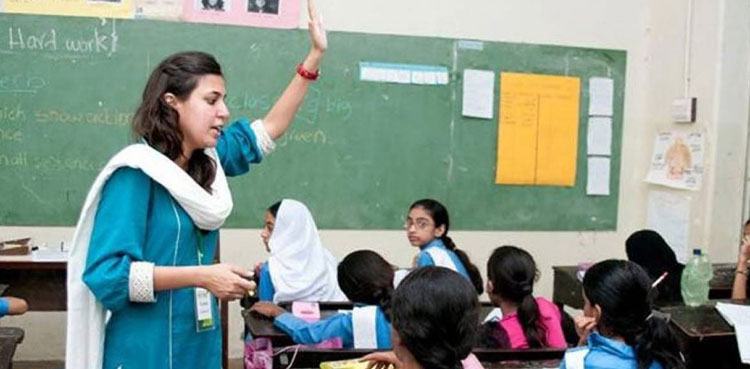Teachers: Giving them a Voice in Policy!
- By Dr Shelina Bhamani -
- Oct 04, 2024

Teachers’ day is celebrated across the world on the 5th of October every year. This year the theme reiterates “Valuing Teachers Voices Towards a New Social Contract for Education” which essentially is vital to bring teachers voices upfront. Teachers are the building block of any educational system and their participation in designing policies, programs and curriculum is fundamental to advance education.
Teachers should be recognized and engaged as one of the key stakeholders in educational planning.
There are several studies and perspectives regarding lack of teacher representations in educational policy making and planning which pose significant impact on quality teaching and learning. From centuries teachers are considered as mere implementing partners who are solely responsible to deliver the education that is planned by a set of groups. However, in the recent era there is emerging evidence of advancing role of teachers and educators and significance of engaging them in educational planning and policy building.
But these inclusions are limited and there is still a wide gap in the system to truly get the teachers to be the core of the policy making act. Valuing teachers’ voices is a term that requires a herculean effort to reconceptualizing educational planning and decision making and answering the big questions on how teachers must be engaged in this process and to what extent. Coming onto the term “The new social contract for education” which means reimaging education and shaping its future by constructively and in true sense engaging educators and connecting them to the government, policy makers and community of practice to craft educational landscape.

This engagement is pivotal in benefiting the entire educational system for several reasons.
One of the major reasons is teachers having an actual understanding of what are the grass hood realities are and what works and what does not work in the classrooms, these reflections coming from the core of where learning is happening, are utmost essential for the educational planners. Another important reason is teachers having a thorough knowledge of learners and the context. Getting the nuances of where our children come from, what they think and who they are is fundamental in educational planning. Additionally, by bridging the gap of lack of teacher representation, the state actors and planners also get a chance to solve problems of teachers like shortage of resources, insufficient funding, burn out, lack of work life balance, curriculum implementation issues and teacher and student wellbeing and build pragmatic solutions to support these in the policy. All these elements are paramount in educational success.
Teacher collaboration for policy making is also beneficial when it comes to educational innovations. Any new strategy, design, method or technology require extensive formative research and reality check, more so it also requires intensive amount of feasibility and pilot, if teachers are engaged in designing and its feasibility testing, the innovations can be scaled, and the ownership of the innovation will be threefold.
There are various ways teachers could be engaged:
- Establishing teacher led advisory groups at local, provincial and state levels. The work of this group could be to share the implementation challenges of policies and programs and send their representation in the policy development.
- Developing a national teacher task force whereby teachers from all levels and all types of educational systems i.e. private, public, community etc hold memberships and the task force could critically appraise policies with the teachers on ground and conduct regular round table to seek suggestions from the educator community of practice
- Mandate quota/assigned seats for teachers in national policy council
- Conduct teacher retreats for designing national action plans
- Provide public comment platform where teachers are voicing out their concerns, reflections and sharing ideas
- Work on having a national level teacher repository to ensure every teacher in nation is registered and has a membership number. Sending quarterly surveys to include their voices.
This piece underscores the importance teachers have in educational system strengthening and request call for action for including teachers and educators in educational development and policy making.
